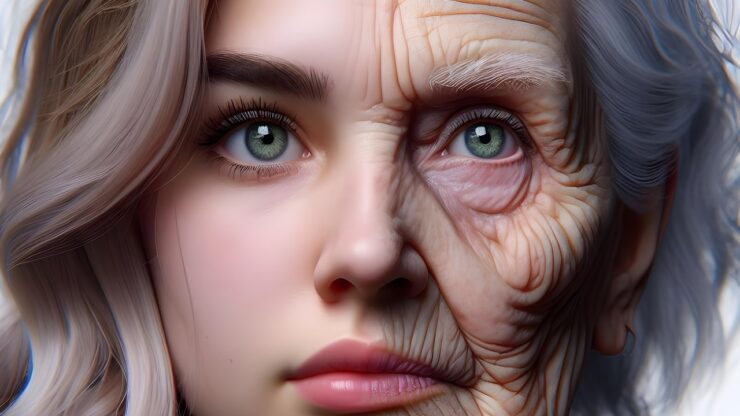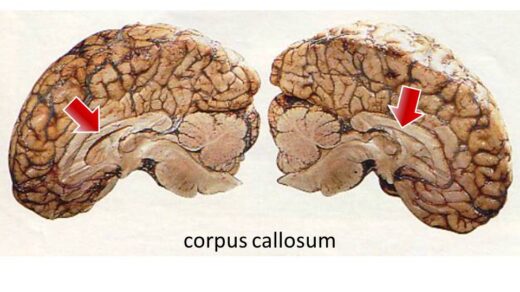You know, sometimes it just feels like your body is kinda, like, speeding ahead, getting older way quicker than it really should be. It’s not just a feeling though; the sources actually point to some real clues that your body might actually be aging faster than typical. Like, it’s not always about just getting more wrinkles, though that’s part of it too. It’s more of a whole bunch of things, you know, that if they start showing up a bit early or just seem a bit much, well, those could be little hints that something’s happening a bit too fast for your age.
Your Movement and Body Strength

Walking Pace Slowing Down: If you’re in your 40s and your walking starts getting slower, that could totally be a sign you’re aging faster than what’s typical. Walking is honestly one of the best and easiest ways to exercise, so try to start with just 5 minutes a day and build up to 30, aiming for about 100 steps a minute. Good shoes and a friend can make it much easier, too.
Achy Joints Kicking In: Not everyone gets stiff joints, but your chances of developing osteoarthritis definitely go up as you age. Guys might start feeling symptoms after 45, and women usually after 55. There’s no magic cure, but even just an hour of exercise a week can help slow it down. Just, like, check with your doctor first if you’re new to exercising.
Trouble with Stairs: It’s super normal to struggle with steps every now and then, but if it happens pretty often as you get older, it might mean other daily stuff will become tough too. It could be just needing more exercise, or maybe some pain or balance issues, or even meds. Best to chat with your doctor to rule out more serious things like heart problems or arthritis.
Hand Strength Dropping: You might notice opening a stubborn jar is harder, or your grip on the steering wheel isn’t as firm, especially once you hit your 50s. This drop in grip strength is pretty common then. You can totally work on keeping them strong, though, by playing with clay, squishing a stress ball, or even just wringing out a wet washcloth. But if you lose that grip strength suddenly or really early, that could point to something else, like arthritis or nerve damage.
Skin Changes

Brown Sun Spots Popping Up: These brown spots on your face, hands, and arms are really common, especially once you’re over 50, and they’re usually just from years of being in the sun. Most are harmless, but you should definitely see a doctor if they’re black, change shape, bleed, or have, like, a rough border. Seriously, wear sunscreen, cover up, and try to avoid being outside when the sun’s strongest, like between 10 a.m. and 2 p.m.
Dry, Dull Skin: Your skin just makes less oil as you age, so it can get super dry and dull, particularly after 40. Sometimes it’s also because of what you’re doing or not doing. To help, take short, warm showers, clean your skin gently, moisturize really well, and drink plenty of water. And try not to spend too much time in really dry air. If it’s still super itchy and dry, a dermatologist can help figure out if it’s a medical issue.
Easy Bruising: This becomes way more common once you’re past 60. Your skin gets thinner and loses fat, and your blood vessels become more fragile. Even some medicines can cause more bruising. Usually, they’re harmless and just go away. But if you’re constantly getting lots of big bruises, especially on your chest, back, or face, or if you started bruising after a new medicine, definitely see your doctor.
Other Health Indicators

Memory Blips: Mild memory changes are just part of getting older and can actually start as early as your 40s. You might take a bit longer to remember names or facts. But hey, true dementia, like Alzheimer’s, usually doesn’t happen until after 65, and it’s not a normal part of aging. To keep your brain sharp, try to eat healthy, stay social, and get some exercise.
Thickening Waistline: As we get older, body fat kinda loves to shift to our belly, especially for women after menopause. And no matter your age, a thick waist can lead to bigger health problems like heart disease and type 2 diabetes. The risk goes up if your waist is more than 35 inches for women or 40 for men. The best ways to tackle this are regular exercise and a healthy diet.
Vision Woes: After you hit your 40s, seeing things close up, like reading a tiny menu, often gets tricky – that’s called presbyopia. More serious stuff like glaucoma or cataracts can happen too. To lower your risk, always wear sunglasses that block UVA and UVB light, don’t smoke, eat healthy, exercise, and get your eyes checked every year.
Irregular Periods (for women): For women, periods often get less regular in your late 30s or early 40s. This is called perimenopause, when your body starts making less estrogen, so your periods might be lighter, shorter, or less frequent. But if they suddenly become super different or really painful, especially in your 30s, it’s worth checking with your doctor, as it could signal early menopause.
These are just some things to kinda be aware of, you and it’s always good to talk to a doctor if something feels off.
















